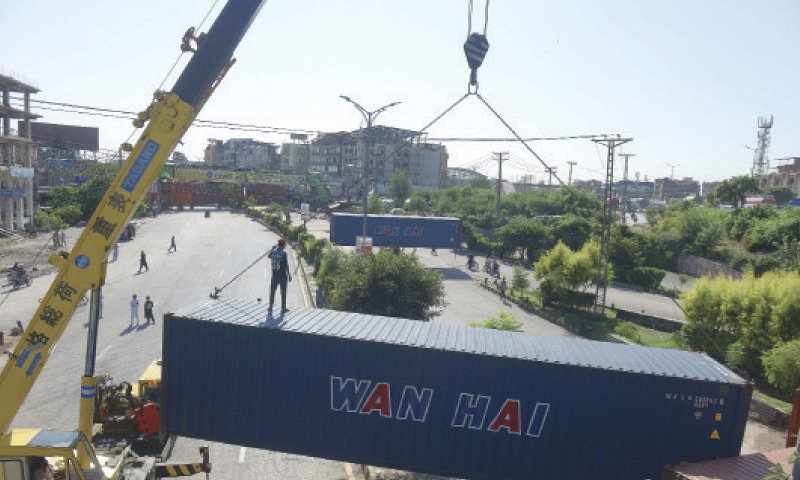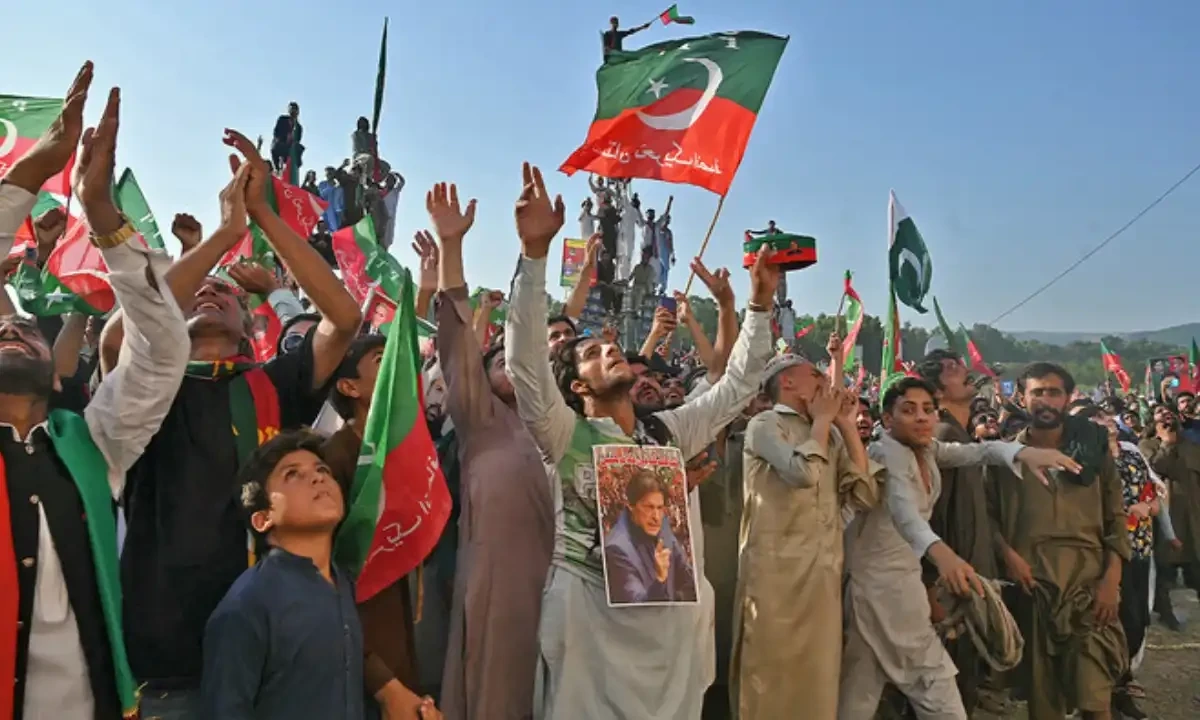The political landscape of Pakistan has been marked by turbulence and unrest, particularly in recent months. The arrest of nearly 1,000 protesters in Islamabad underscores the intensity of the ongoing political struggle.
These demonstrators, defying lockdowns and bans on public gatherings, surged into the capital, demanding the release of Imran Khan, the charismatic former prime minister who has become a symbol of resistance against the current government and military establishment.
As the situation unfolds, it reveals deeper fractures within Pakistan’s political and social fabric, with implications that extend far beyond the current crisis.
The March on Islamabad: A Show of Defiance and Determination
On Tuesday, Islamabad witnessed one of its largest protests since the February elections, as over 10,000 supporters of Imran Khan’s Pakistan Tehreek-e-Insaf (PTI) party flooded the streets. This mass gathering defied a government-imposed lockdown and a strict ban on public gatherings.
The protesters, led by key PTI figures including Ali Amin Gandapur and Bushra Bibi, aimed to occupy a public square in the heart of the capital. However, their path was blocked by 20,000 security personnel equipped with tear gas and batons, resulting in violent skirmishes.
The scale of the protest reflects the deep-seated discontent among Khan’s supporters, who view his imprisonment as a politically motivated attempt to sideline him ahead of crucial elections.
Since his arrest in August 2023, Khan has faced numerous legal battles, which he claims are fabricated to prevent his political resurgence. Despite the government’s efforts to quash dissent, the PTI has continued to mobilize, with this latest march being a significant display of defiance.
Read : Islamabad Turned into ‘Containerabad’ by Protesters of Imran Khan: Watch
The response from the authorities was swift and severe. Nearly 1,000 protesters were arrested, and the city center was cleared through a heavy-handed security operation. Mobile internet services were cut off, schools were closed, and roadblocks were set up, disrupting the lives of ordinary citizens.
Read : Exploring Pakistan: A Journey Through the Land of Peaks and Valleys
The crackdown has drawn criticism from various quarters, including human rights organizations, which have accused the government of using excessive force. Amnesty International condemned the actions, highlighting the unlawful measures taken against peaceful demonstrators.
Political Ramifications and the Call for Dialogue
The arrest of protesters and the government’s stringent measures have intensified political tensions in Pakistan. Prime Minister Shehbaz Sharif’s administration has characterized the protests as “extremism,” a narrative aimed at delegitimizing the PTI’s actions.

However, this approach has only fueled anger among Khan’s supporters and increased resentment towards the establishment. The government’s hardline stance has been criticized for exacerbating divisions rather than fostering reconciliation.
The Human Rights Commission of Pakistan has called for a “purposeful political dialogue” between Khan’s PTI and Sharif’s ruling coalition. The organization emphasized the need for a peaceful resolution, warning that continued confrontation could destabilize the country further.
This sentiment is echoed by political analysts who believe that dialogue is the only viable path forward. Michael Kugelman, director of the South Asia Institute at The Wilson Center, remarked that the protests had “no winners,” highlighting the detrimental impact of the ongoing conflict on Pakistan as a whole.
The call for dialogue is not just about resolving the immediate crisis but also about addressing the underlying issues that have fueled the current unrest. Pakistan’s political landscape has long been dominated by a powerful military establishment that influences the rise and fall of political leaders.

Imran Khan’s ouster in 2022, following a no-confidence vote, is widely seen as a result of his falling out with the military. His subsequent campaign of defiance has challenged the traditional power dynamics, making him a polarizing figure in Pakistani politics.
Impact on Society
The events in Islamabad have had a profound impact on Pakistani society. The heavy-handed response from the authorities has disrupted daily life, with roadblocks and internet shutdowns affecting thousands of citizens.
Schools and businesses have been forced to close, and the sense of uncertainty has added to the economic and social challenges facing the country. For many ordinary Pakistanis, the political turmoil is a source of frustration and despair.
The protests and subsequent crackdown have also highlighted the deep divisions within Pakistani society. Supporters of Imran Khan view him as a champion of democracy and a victim of political persecution, while his opponents see him as a destabilizing force. This polarization is not new, but it has intensified in recent months, raising concerns about the long-term stability of the country.

The path forward is fraught with challenges. For Pakistan to emerge from this crisis, there needs to be a concerted effort to foster dialogue and reconciliation. Both the government and the opposition must prioritize the interests of the country over political rivalries.
This requires a willingness to engage in meaningful negotiations and a commitment to upholding democratic principles. The international community also has a role to play in encouraging dialogue and supporting efforts to strengthen democratic institutions in Pakistan.
A Crucial Moment for Pakistan
The arrest of 1,000 protesters in Islamabad is a stark reminder of the political and social challenges facing Pakistan. The situation underscores the need for dialogue and reconciliation, as continued confrontation will only deepen the country’s divisions.
The deployment of heavy-handed measures to suppress dissent has drawn criticism from human rights organizations and highlighted the need for a more balanced approach.
Imran Khan’s imprisonment and the subsequent protests have become a focal point in Pakistan’s political landscape, symbolizing the broader struggle for democracy and justice.
As the country navigates this critical moment, the path forward will require courage, compromise, and a commitment to democratic values. The future of Pakistan depends on its ability to rise above political rivalries and work towards a common goal of stability and prosperity.

